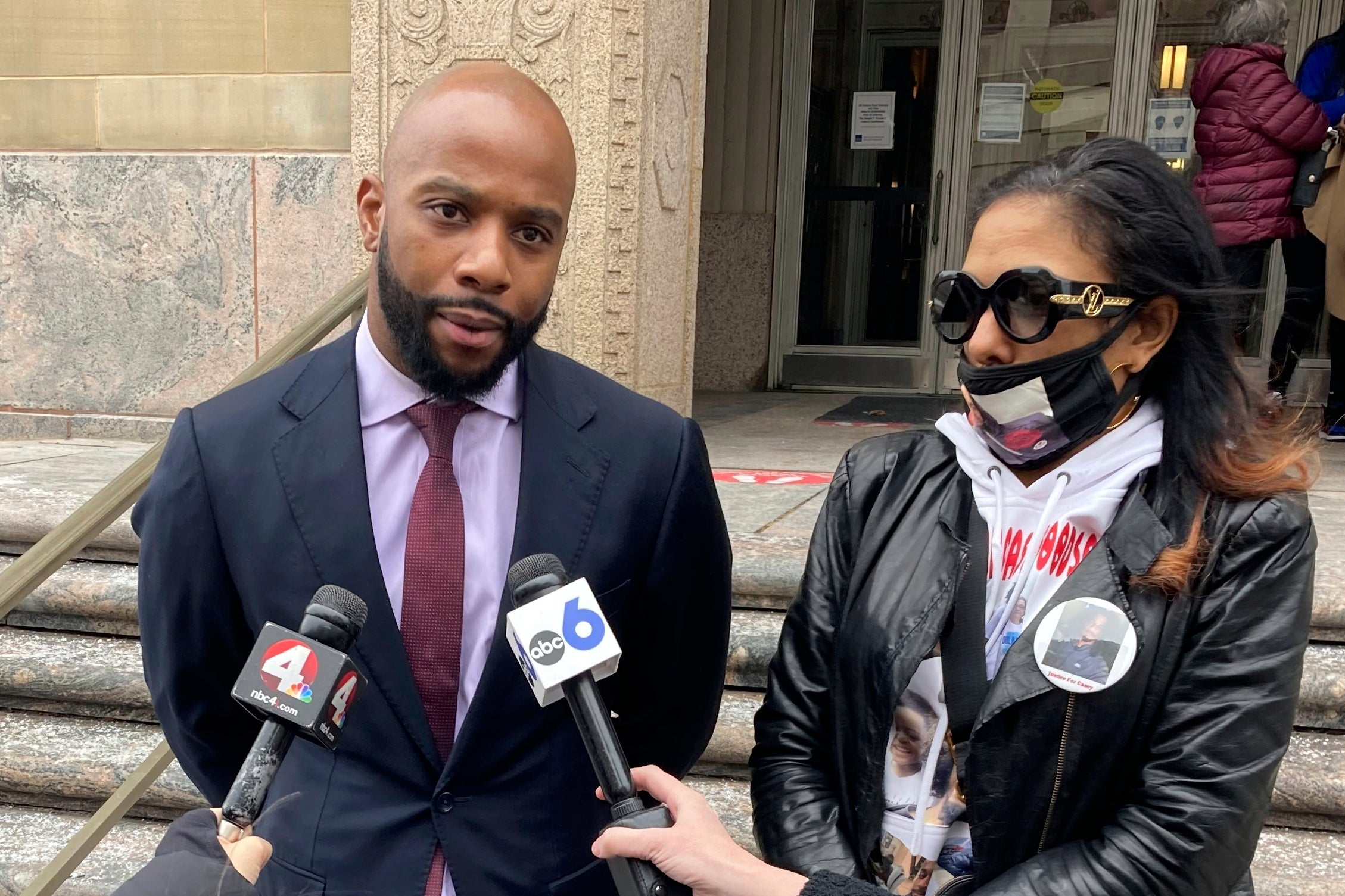Judge: Deputy who killed Casey Goodson not a federal agent
A judge has ruled that a white Ohio sheriff’s deputy wasn't acting in his capacity as a deputized federal agent when he fatally shot Casey Goodson Jr. Defendant Jason Meade was charged last year with murder and reckless homicide in the fatal December 2020 shooting of Goodson, who was Black

The Ohio sheriff's deputy who fatally shot Casey Goodson Jr. was not acting in his role as a deputized U.S. marshal at the time of the shooting, and the murder case against the deputy must remain in state court, a federal judge ruled Thursday in a victory for prosecutors who charged the deputy.
Defendant Jason Meade, who is white, has pleaded not guilty to murder and reckless homicide in the 2020 death of 23-year-old Casey Goodson Jr. Goodson, who was Black, was shot as he entered his grandmother’s house following a dental appointment, according to his family and prosecutors.
Meade did not have authority to arrest Goodson as a task force member and was not acting as a federal officer at the time, federal Judge Edmund Sargus Jr. of the U.S. District Court, Southern District of Ohio ruled Thursday.
“Meade’s only authority to arrest Goodson came from his state authority as a deputy sheriff to enforce state law,” Sargus said. “This case is properly tried in state court.” The judge said during a Feb. 11 hearing it was the first time he had handled such a case in 25 years on the bench.
Meade’s attorneys wanted the case tried in federal court as a step toward having the state charges dismissed, and because it was far less likely Meade would be charged with killing Goodson under federal law. Franklin County prosecutors fought the move to keep the charges alive in state court.
Meade was a full-time Franklin County Sheriff’s Department deputy on regular assignment with a U.S. Marshals Service fugitive task force immediately before the shooting. Meade was finished with his task force assignments for the day when, he and his attorneys say, he saw Goodson nearby in a car waving a gun in a threatening manner.
After following Goodson, a confrontation between the two led to Meade shooting Goodson six times, including five times in the back, according to Meade’s statements and the coroner’s autopsy report.
Meade’s lawyers says the deputy fired when Goodson pointed a gun at him. Goodson’s family has never denied that Goodson might have had a gun on him but has also noted he had a license to carry a gun.
Goodson’s family says he was opening the door to his grandmother’s house holding a bag of sandwiches at the time he was shot. Investigators said a gun was recovered from the scene but have not provided further details.
Meade said in a statement taken shortly after the shooting that he yelled, “U.S. Marshals! It’s the police!” and “Show me your hands!” Meade retired from the sheriff’s department last year on disability.
In the days after Goodson's death, racial injustice protesters took to the streets of Ohio's capital. A federal civil rights lawsuit filed by Goodson's family alleges the Franklin County Sheriff's Office failed to investigate claims of unreasonable force against Black residents and failed to properly train deputies on firing guns at civilians, “particularly at African Americans.”
Meade’s salary was still paid by the county, and he was authorized only to “seek and execute arrest and search warrants” under his marshals’ assignment, according to court documents and testimony at the Feb. 11 hearing.
Cases of fugitives pursued by the task force must be issued a federal identification number and the warrant verified before a task force member can take action, Charles Sanso, a U.S. marshal who oversees four such operations in Ohio, testified Feb. 11. Neither situation existed with Goodson, he said.
After reviewing Meade’s actions the day of the shooting, “We concluded that this was not a marshal service shooting,” said Sanso, a witness called by prosecutors.
When Meade saw Goodson with the gun, an act that amounted to a state crime, “he was not exercising federal authority,” Elizabeth Ellis, a special Franklin County prosecutor, told the judge Feb. 11.
But Ryan Rosser, a current member of the Columbus fugitive task force, testified on behalf of Meade that he couldn’t equivocally say whether Meade was acting as a sheriff’s deputy that day.
Meade’s attorneys hope to have him covered by immunity provided to federal officers, meaning his case could not be tried in a state court and the charges would have to be dismissed.
Meade has pleaded not guilty and is free on $250,000 bond.
The lawsuit filed by Goodson’s family against Meade and the sheriff’s office also claims that Meade received hundreds of hours of firearms and SWAT training but little on violence de-escalation techniques.
Bookmark popover
Removed from bookmarks